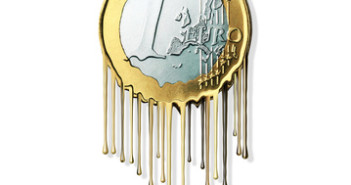While deflation in the euro-zone is denied by the ECB, it is certainly on the table. ECB members are getting busier discussing this option, and they are accompanied by other bodies. The IMF just chimed in by saying there is a 10-20% chance for 2014.
To fight deflation, the euro-zone needs more economic activity: more euros in circulation and a weaker value of the euro to boost exports. This can be triggered by setting a negative deposit rate. It seems that the ECB just needs another small push. Can it happen in the March meeting?
Update: January sees a fresh drop of CPI to 0.7%. Some analysts see a February cut, while here we stick to March.
While Draghi denied that there is a risk of deflation but just low inflation for longer, he recently said that deflation in some states requires adjustments. Is he preparing us for the move?
Falling inflation
Words matter, and so do numbers. The most recent core inflation figure in the euro-zone was confirmed at 0.7%, below the October value of 0.8% that triggered the rate cut in November. However, headline CPI was slightly higher in December than in October: 0.8% vs. 0.7%.
Germany, the core of the core, saw HICP inflation dropping unexpectedly to 1.2% and recently PPI fell short by rising only 0.1%. The next figures are German flash CPI for January on January 30th, and the all-European number on the 31st.
What’s needed for the move?
A fall to new multi-year lows of 0.6% in either CPI or Core CPI in the euro-zone might be needed for a new policy change from the central bank. Even if the current trend continues into January and these indices reach 0.6%, it might be too early for Draghi and his colleagues to move in the upcoming meeting on February 6th.
Nevertheless, by March 6th, the numbers could worsen and the markets could be ready for a move. A negative deposit rate doesn’t need to be at deep freeze territory: -0.1% will do. A symbolic move to discourage banks from parking their funds with the ECB could send money away from Europe and weaken the euro.
What do you think? Will they or won’t they?
For more on the euro, see the EURUSD forecast.
